Behind the sprawling NIT campus in Srinagar’s Hazrabal area, sleepy Chakbagh neighbourhood holds a unique distinction of housing the two fashionable and fabled quilt-makers. The blind Teli brothers, as the introduction goes, have already entered into local legends for their sheer resilience to rise above their crippling disability and to inspire even the normal folks of the town.
It’s the crisp afternoon and Muhammad Hussain Teli sits in the corner of his workspace on the third floor of a modest house. His weary and wide-open eyes seemingly search for something. This impression, however, lasts till the reality of his sightless eyes dawns itself.
But the habits turned to instincts, he prepares to stitch huge cotton quilt, his fingers enlightened, finding their way.
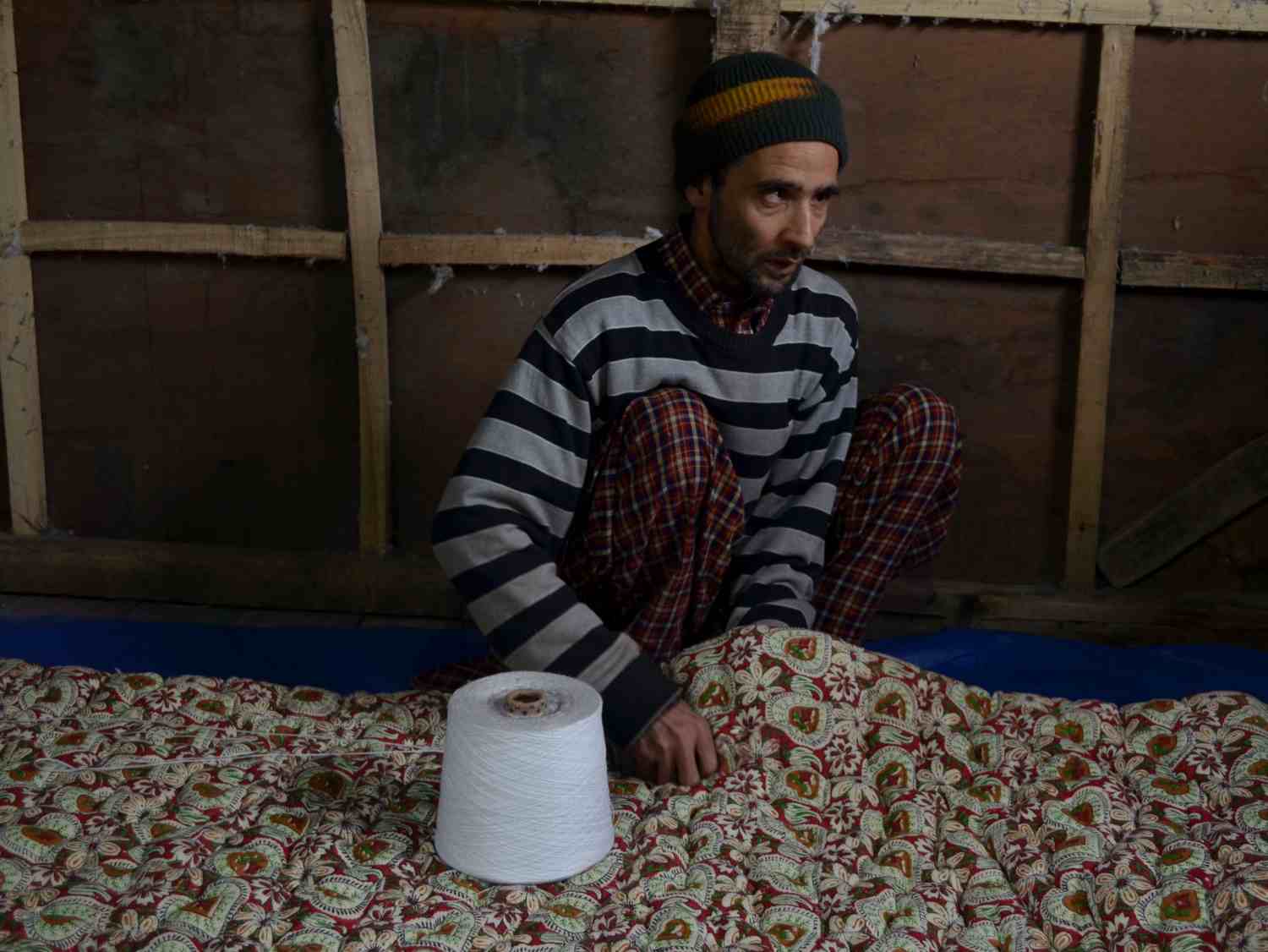
Muhammad Hussain Teli.
On his opposite side, sits Ghulam Nabi Teli, his brother, looking straight, vacantly.
At the first glance, his eyes appear normal, defying the darkness that has come to dominate them since the time he came out of his mother’s womb. But if you peep keenly into them, there’s something peculiar you notice. They cannot look back, unlike his brother’s eyes do.
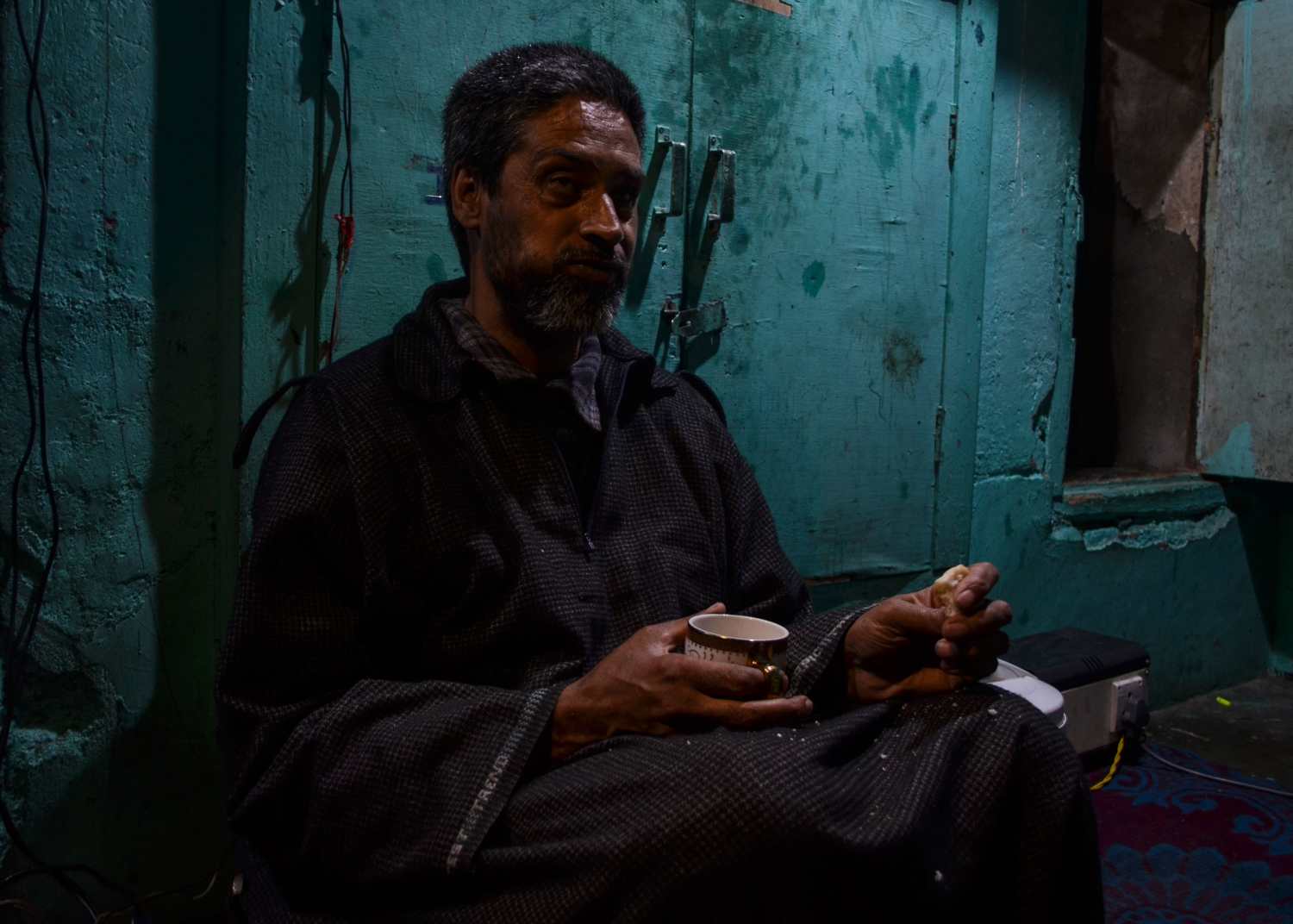
Ghulam Nabi Teli.
Beside their needle mastery, the brothers use no stick and wear no dark glasses, unlike their sightless tribe. It further sets them apart.
As the conversation sprawls on, it starts raining heavily outside. The two blind brothers turn inquisitive to listen to the crackling sound of rain on the rooftops and involuntarily start smelling the fresh April downpour.
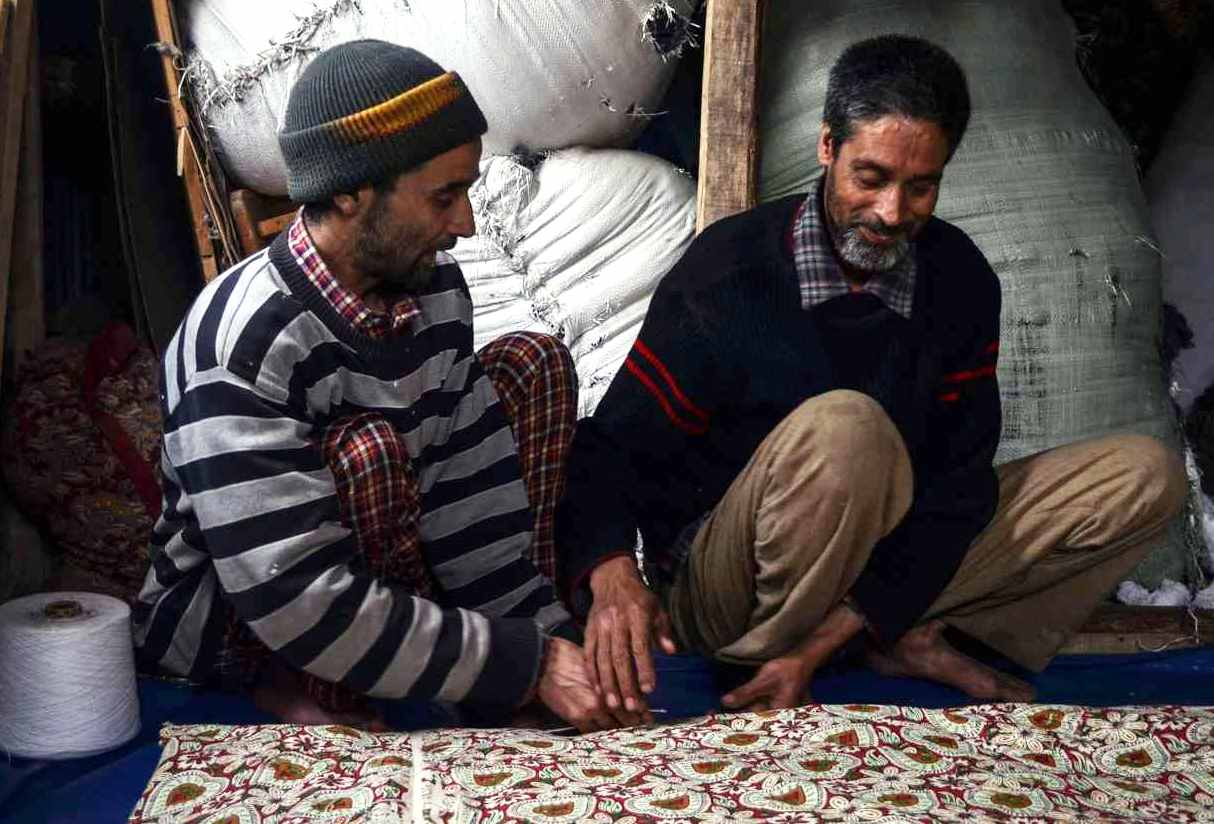
Their poorly lit room is quite big, with traces of dust everywhere: roof, plywood walls, and wooden floor. The dust has apparently accumulated over the years in the room cum workplace, which is separated into two parts.
Huge bags of cotton, finished quilts, cushions and pillows are kept on the one side, while the other side is used for stitching quilts.
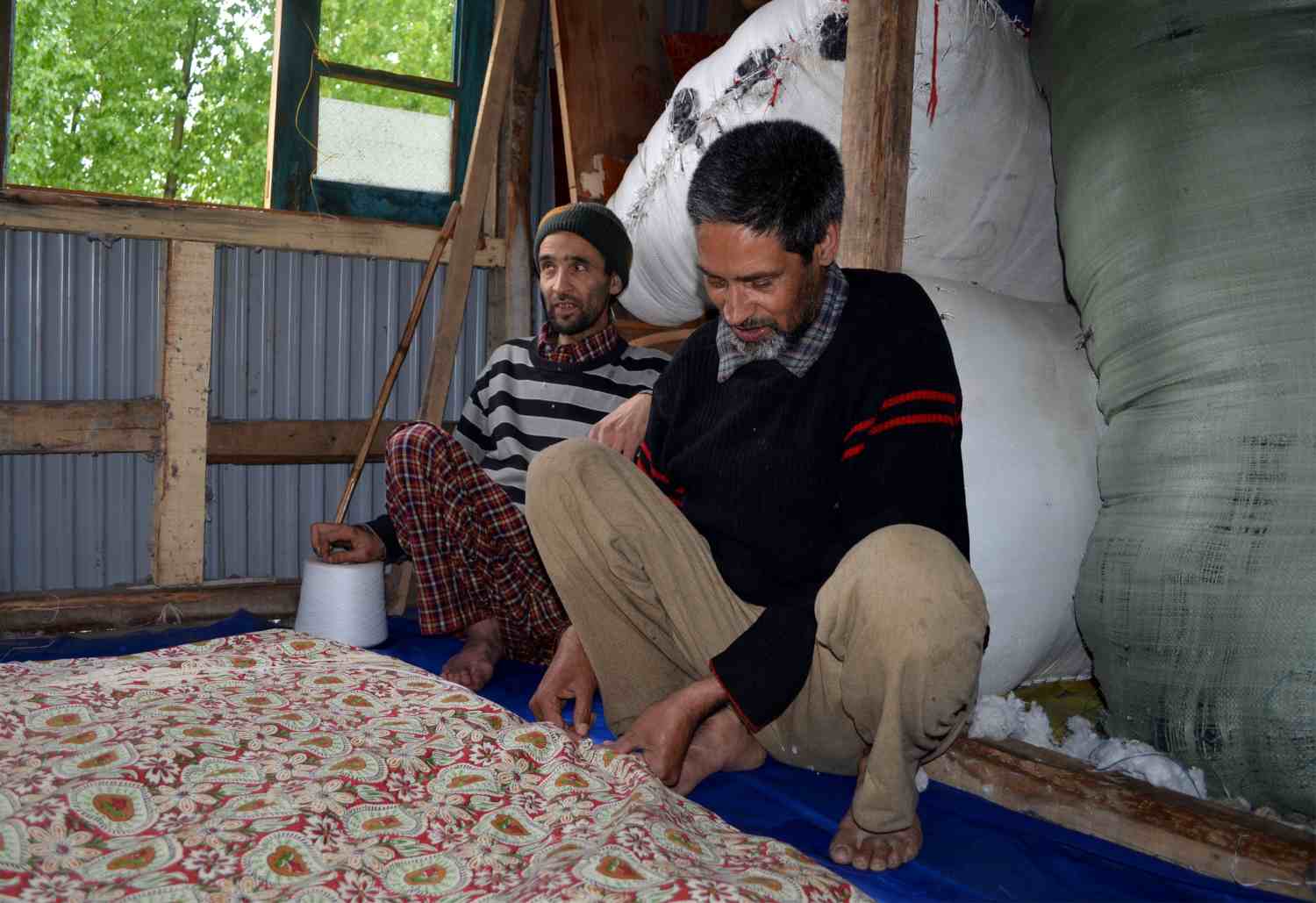
As they sit to stitch their livelihood in this room, the brothers defy the dependency sense, normally associated with their tribe.
In his mid-40s, Hussain still remembers the day, quite vividly, when a government official he approached for help spurned him down and told him to beg instead. “He was so reluctant that he didn’t even listen to me completely and advised me to beg on the streets,” recalls Hussain, with a blank face. “Had government been helpful to us [the blind], lot of people would not be spotted on the roads.”
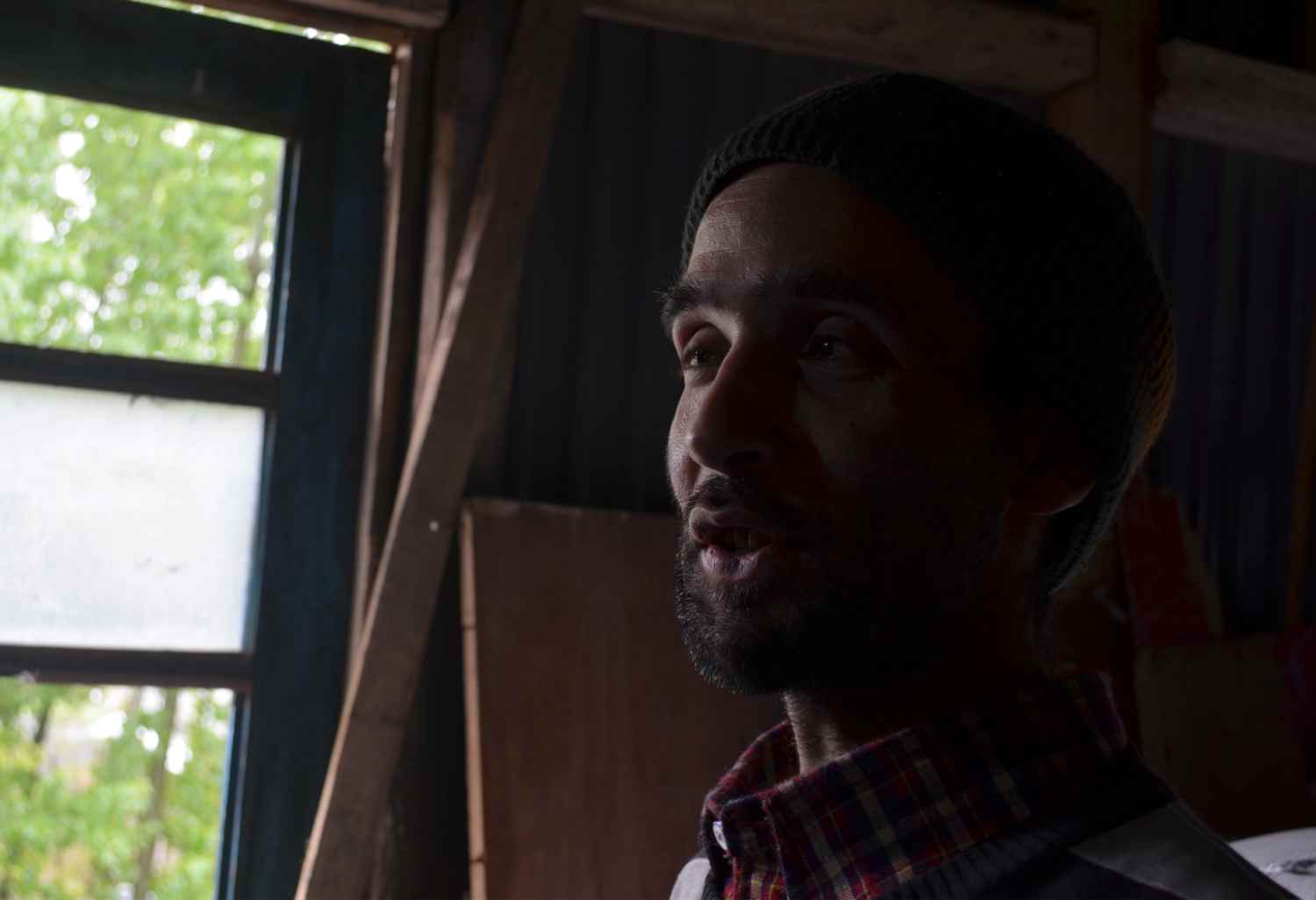
It was during those trying times that a Samaritan from Srinagar’s Zadibal area, Fida Hussain Baba came to their rescue.
Baba asked the brothers to get training and be independent.
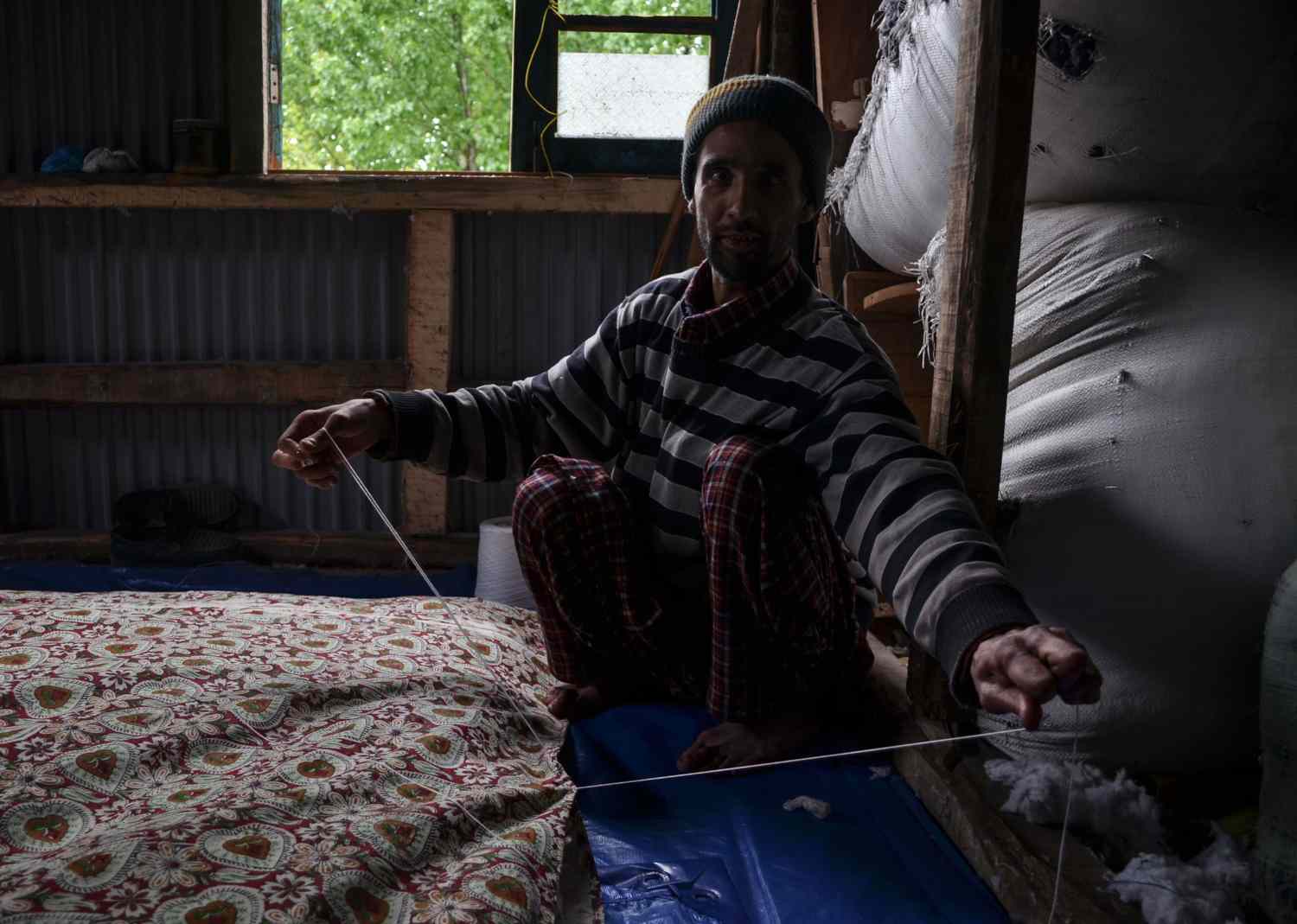
“On his advice, we went to Dehradun and got training from National Institute for the Visually Handicapped,” Hussain takes a trip down the memory lane. “There, we learned how to make candles, chairs and chalks and Braille reading.”
Once back home, years of gruelling training would turn out utterly abortive. Their repeated pleas only fell on deaf ears.
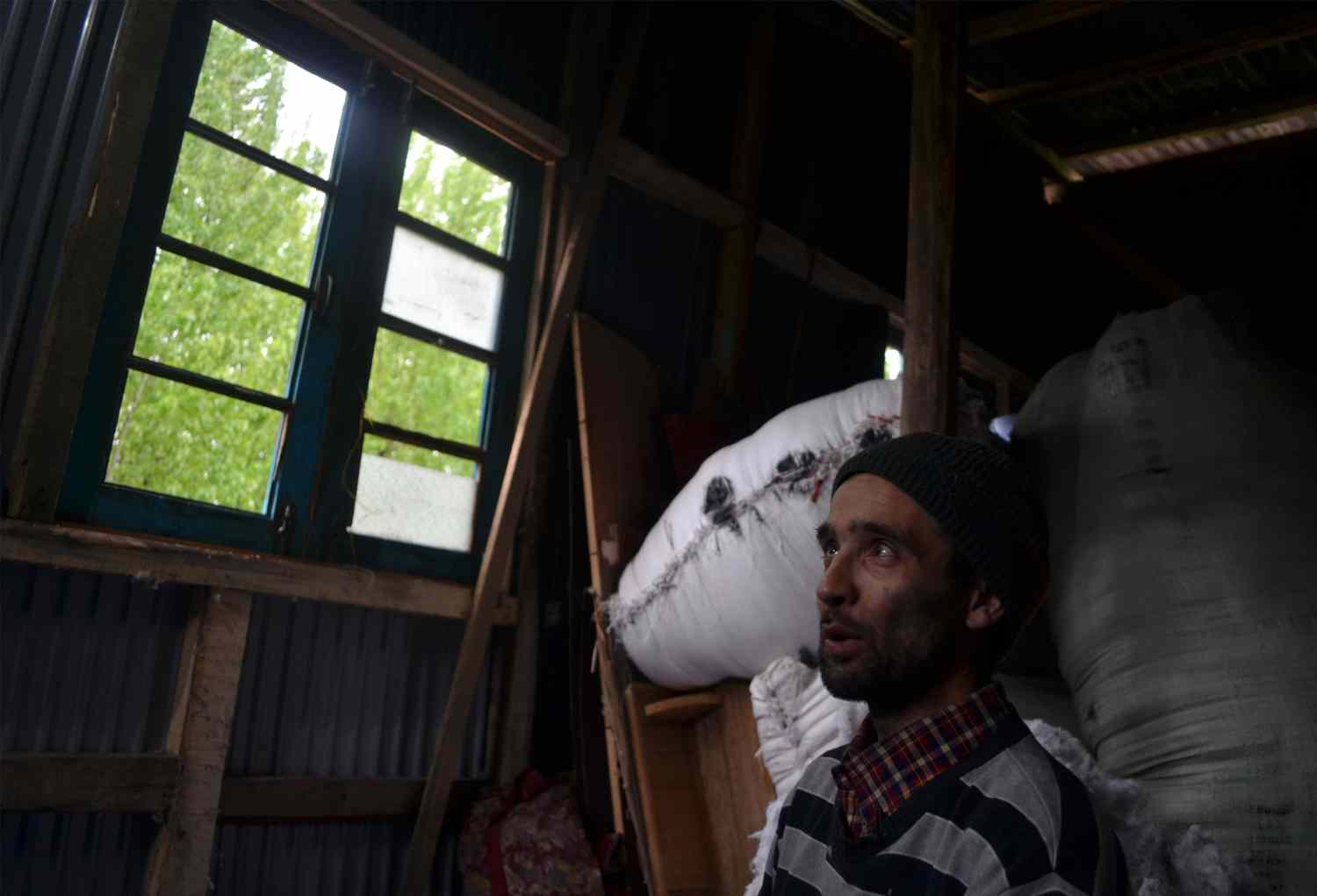
“The certificates we got there are now locked in a trunk,” Ghulam Nabi says with a sad face. “Government custodians always slammed doors on our faces and shooed us away!”
He turns mute—briefly—as if to make sense of his helplessness. And then, with a pent-up vigour, he declares: “In Kashmir, blinds are reciprocated with advice to beg on the streets.”
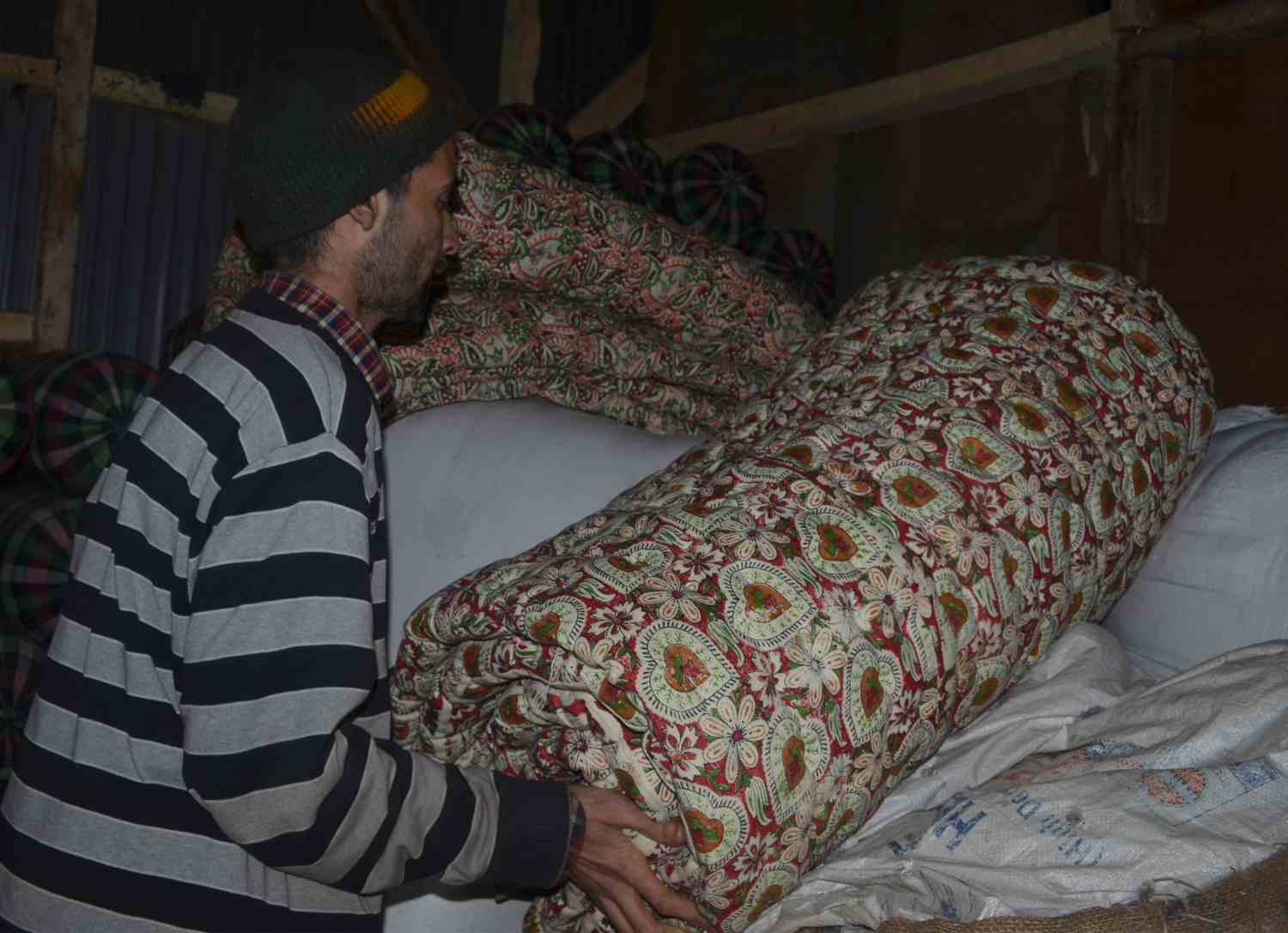
This ‘nerve-racking’ indifference towards the specially-abled people eventually forced the Teli brothers to be their own help.
Time, training and toil only vindicated their decision.
And today, the brothers live separately, but earn together by making quilts, cushions, and mattresses for customers. They receive sizeable orders from a local quilt-dealer. They’re quite popular in town, and their popularity comes from their never-say-die attitude.
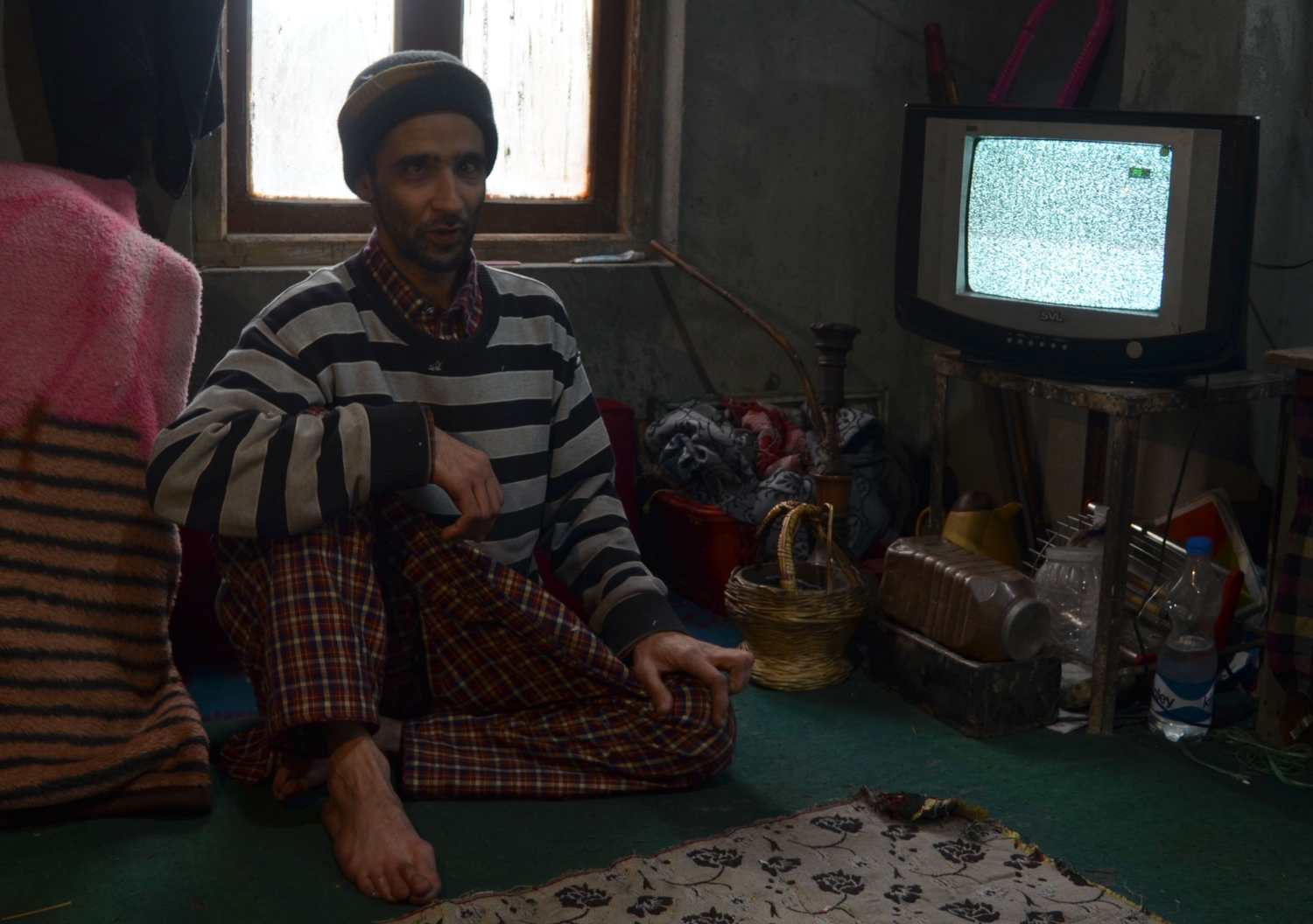
But their sheer ability to stitch with precision often leaves people in wonder.
Training is fine, many argue, but how do they manage to pull off such flawless work—that too, with such consistancy?
“By birth,” Hussain answers, “we weren’t able to see things but there’s a unique world inside our mind. We’ve our own interpretations of things that normal people can’t understand. Now our muscles have memorized the surroundings. It’s the light of our soul which guides us — as they say, in Kashmiri, it’s our Waeniji Gaash.”
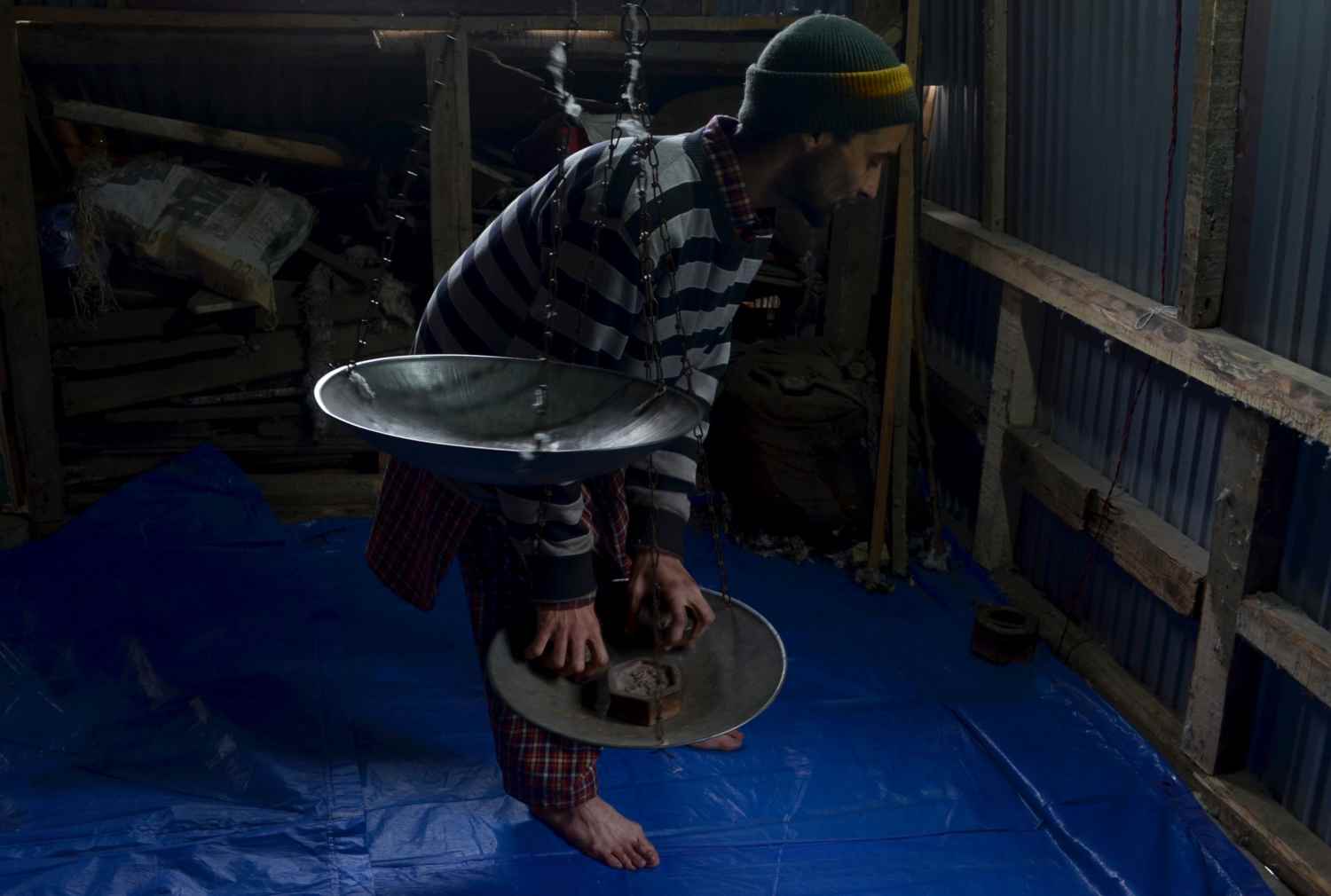
But to restore their normal Gaash, their father, back in the day, had undertaken some exhaustive clinical trips. To his chagrin, however, even best in the business—the renowned eye surgeons of the valley—couldn’t heal them.
“I tried everything to see my children normal,” the tearful father, Mohammad Sadiq Teli, a quintessential tailor in Chakbagh, says.
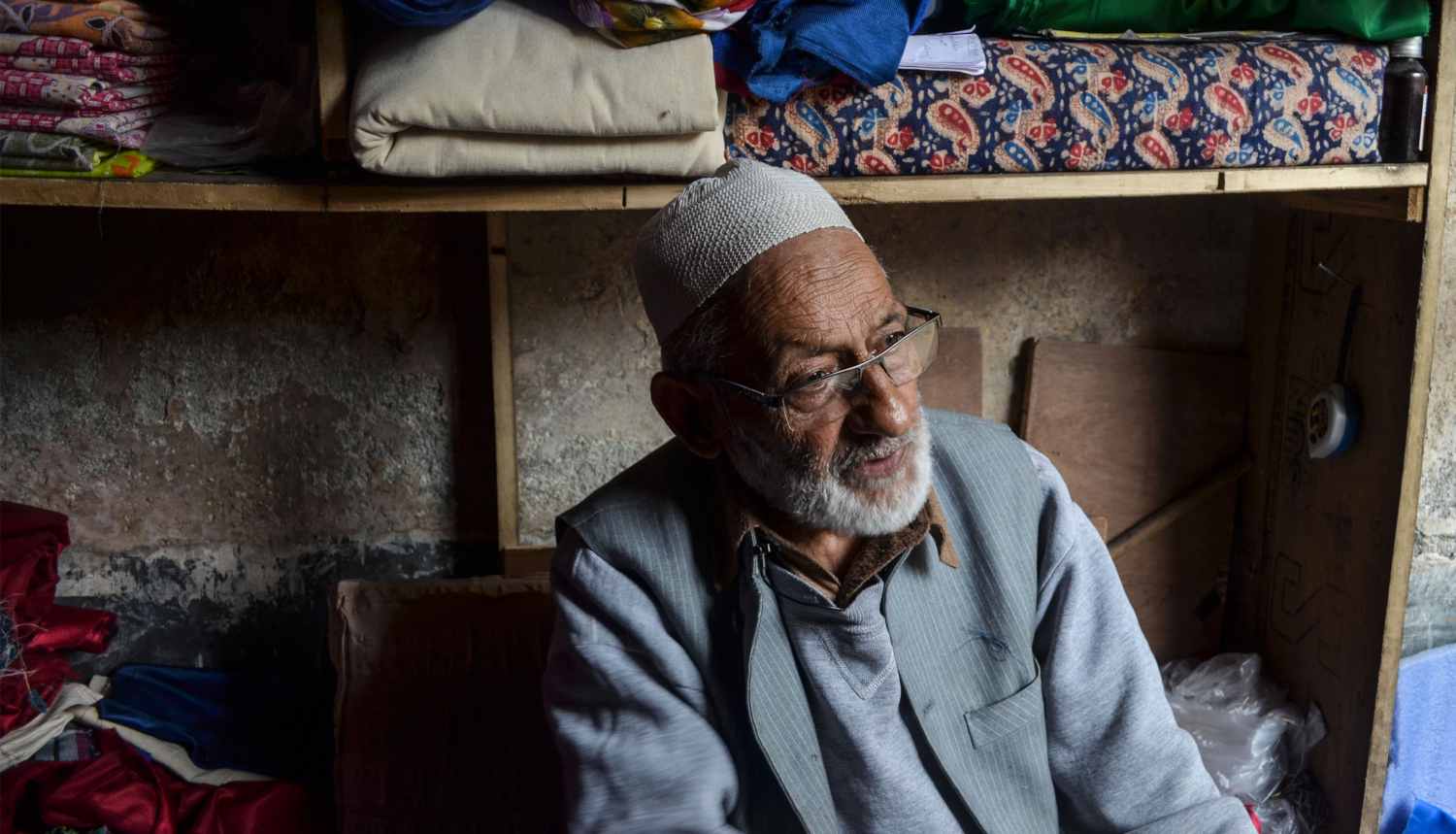
Their father, Mohammad Sadiq Teli.
In his tiny shop, closer to home, septuagenarian Teli sews mattress cover. He takes awkward pauses to recap the tumultuous journey. “After eye specialists failed to bring back light of my children’s eyes, government further disappointed me,” he says. “But till I’m alive, I’ll always have their back!”
Back in their workshop, the blind brothers continue to defy their crippled disability. Their quilt-making skills leave one dumbfounded. They seemingly possess some special sense, which’s lighting their darkness through their astounding skills.
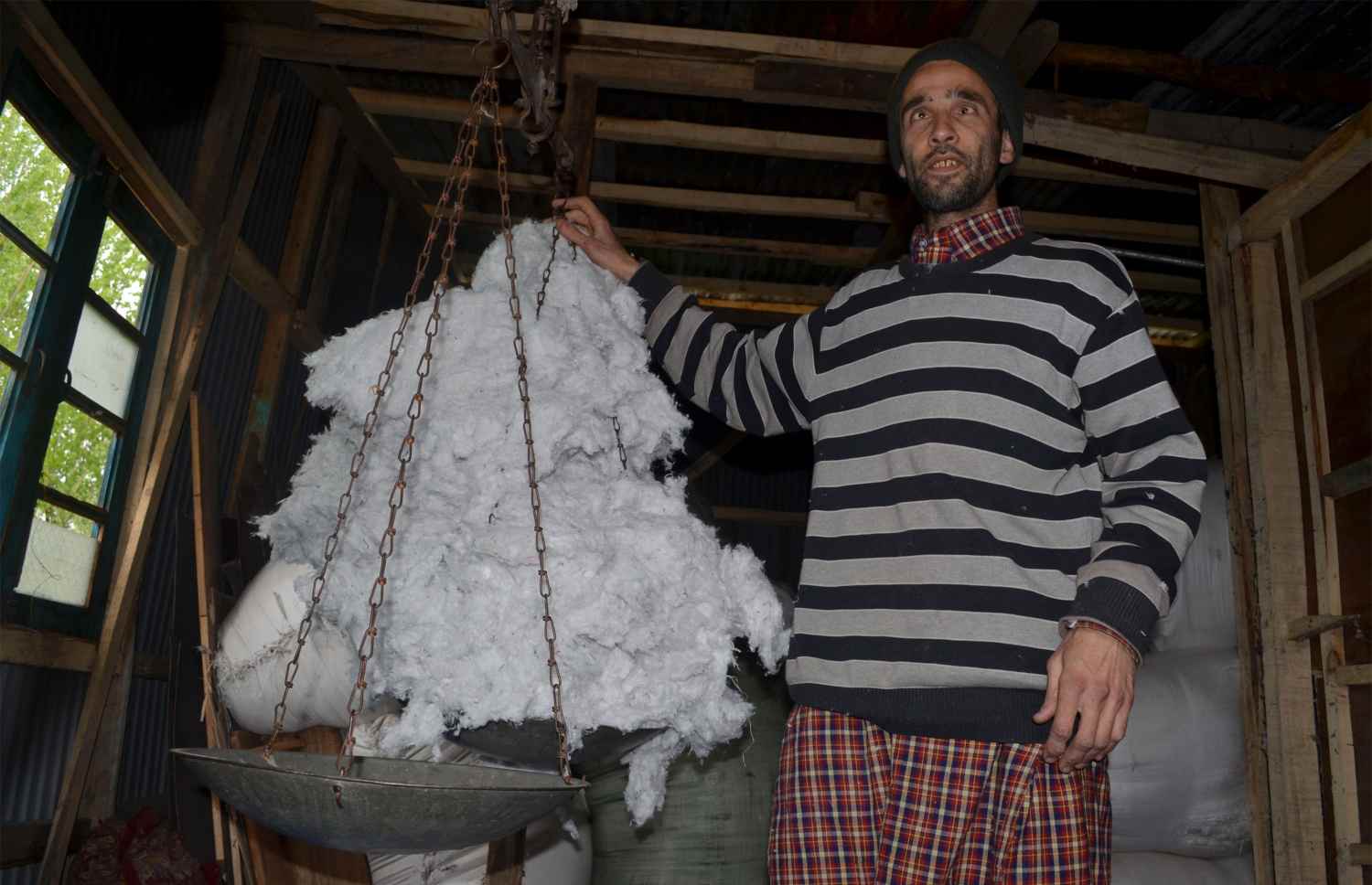
Amid conversation inside their workplace, lights go off.
As I point it out, Hussain replies, sardonically, “Lights go off for you people, not for us! There’s always darkness in our lives.”
Despite that candid remark, the brothers have already become the guiding light for others. And for that, they’re thankful to Almighty.
“We’re thankful to Him that we can earn ourselves and aren’t dependent on others,” says Ghulam Nabi, before quietly resuming his quilt-making.
Like this story? Producing quality journalism costs. Make a Donation & help keep our work going.








